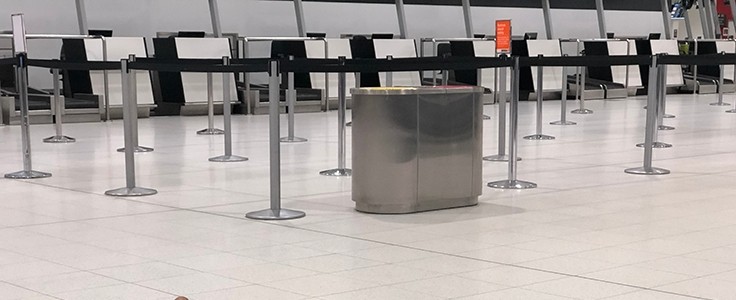ICAO Secretary General Dr. Fang Liu noted that ICAO’s latest forecasts are pointing to 2020 global airline passenger totals declining by some 2.8 billion domestic and international travellers.
MONTREAL – Downturns in air transport have significant and cascading impacts on tourism and hospitality markets all over the world, and recent slight upturns have been insignificant when compared to how severely global air transport and tourism have plummeted due to COVID-19.
This message was underscored by ICAO Secretary General Dr. Fang Liu, as she addressed the latest meeting of the UN World Tourism Organization’s (UNWTO’s) Global Tourism Crisis Committee.
Appreciating the deep inter-dependencies of air transport and tourism, and the close and effective cooperation already established between ICAO and the UNWTO, Dr. Liu reported to the government and industry officials on hand that current trends in global mobility and connectivity continue to paint a dire economic portrait, and one which threatens the economic sustainability of airports and airlines all over the world.
“Overall September passenger totals were only 33% their 2019 levels, and international passenger levels were much worse at just 19% of what was seen last year,” the ICAO Secretary General highlighted. “A troubling dip in the recoveries of some regions is also becoming apparent now, likely as a result of the pandemic ‘second waves’ some countries are now recording.”
Dr. Liu noted that ICAO’s latest forecasts are pointing to 2020 global airline passenger totals declining by some 2.8 billion domestic and international travellers.
She recognized as well that the global air transport COVID-19 response guidelines issued early into the pandemic by the ICAO Council’s Aviation Recovery Taskforce (CART) did not achieve the desired effects on the pandemic and its restrictions on international air transport.
“Countries continue to adopt and apply the recommended CART approaches, and to optimize whatever air connectivity they can in doing so, but the highest levels of national priority in many states remain pandemic-focused,” she commented.
Dr. Liu also recognized that more effective medical approaches and solutions would need to be available “before any meaningful levels of national alignment, and therefore traveller confidence and spending,” would return to the travel and transport sectors.
In terms of latest actions being taken, she emphasized that the ICAO CART Task Force, which features the participation of governments, industry groups, the WHO and UNWTO, and other regional organizations, is now finalizing the Phase II of its ‘Take-off’ guidelines.
“This amended guidance may include a risk management framework for the evaluation of COVID-19 testing solutions,” she noted, “and these could have the potential to alleviate the need for quarantines for international air travellers and tourists, or to shorten quarantine periods where those may be retained.”
She acknowledged the need for realistic expectations and noted that “hard hit airlines and airports are still being counted on to quickly move food and other urgent and essential air cargo wherever the world needs it, this underscores the critical importance of public subsidies for air transport sector at this time.”.
In concluding her remarks, Dr. Liu stressed that “with hundreds of millions of livelihoods now hanging in the balance, the need for continued solidarity and collaboration among the travel and tourism sectors, as exemplified here today, has never been more urgent or critical.”
Theodore is the Co-Founder and Managing Editor of TravelDailyNews Media Network; his responsibilities include business development and planning for TravelDailyNews long-term opportunities.






















![[PR] PR_Ascott and Vimut Hospital_2024](https://www.traveldailynews.asia/wp-content/uploads/2024/04/PR-PR_Ascott-and-Vimut-Hospital_2024-400x265.jpg)






















































